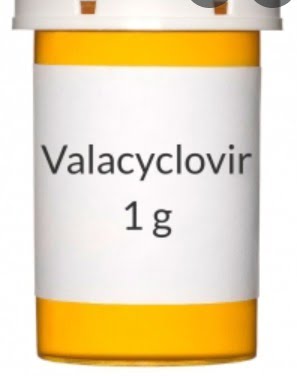All You Need to Know About Genital Herpes
- Updated on: Jun 26, 2024
- 5 min Read
- Published on Oct 4, 2019


What is genital herpes?
Sexually transmitted disease is commonly referred to as STD. It is caused by sexual intercourse. Genital herpes is one of the most common types of STDs which is caused by a virus known as herpes simplex virus (HSV).
The disease tends to cause sores on the genital or rectal area, thighs and buttocks. A person can easily get the disease from another infected person through sexual intercourse. If a pregnant woman is suffering from genital herpes, she can also pass on the infection to her child during childbirth.
Symptoms of genital herpes are normally called outbreaks. People generally get sores near those areas where the virus has invaded the body. The sores are swellings or blisters which can break easily and become very painful. However, after sometime the sores can heal themselves.
Sometimes, people are unaware of the fact that they suffer from genital herpes as their symptoms are invisible or very mildly visible. There is no cure for genital herpes disease but its symptoms can be managed with the help of medications.
Prevalence of genital herpes: How common is genital herpes?
Genital herpes is the most common type of STD prevalent in the United States. According to a report, 1 in every 6 people aged 14 to 49 years suffer from the disease.
What is the cause of genital herpes disease?
The genital herpes disease is caused by a virus known as herpes simplex virus. This virus passes from one person to another during any sexual activity.
As soon as the virus enters the skin of an individual, it starts moving along the nerve path. This virus is usually in its dormant state but may become active during the course of time. As soon as the virus becomes active, it reaches the surface of the skin and can cause an outbreak of the symptoms. In some cases, the symptoms may not be visible.
Types of herpes simplex virus
There are two different types of herpes simplex virus. They are as follows:
HSV-1
HSV-1 or herpes simplex virus type 1 is a type of virus which usually spreads through skin to skin contact. It can also spread across the genital area during oral sexual activity. HSV-1 generally causes cold sores or blisters a person’s mouth.
HSV-2
The most common cause of genital herpes disease is HSV-2. HSV-2 is also known as herpes simplex virus type- 2. This virus usually spreads through skin-to-skin contact and sexual contact. This virus is very contagious.
What are the symptoms of genital herpes disease?
The first symptom of genital herpes disease is the presence of blisters. These blisters are also known as an outbreak. In some cases, genital herpes symptoms are not visible outwardly but that does not mean that the patient does not have the disease.
The symptoms of genital herpes may be visible in the initial 2 days of the virus invasion or may take a month to become visible. As soon as the symptoms occur in an individual, they may be in the form of small blisters which can be very severe. These blisters may outbreak and produce raw sores which can be painful.
Both men and women equally suffer from the disease but may show some different symptoms.
Symptoms of genital herpes in men
Some common genital herpes symptoms in men are as follows:
- Mostly men show silent symptoms or no symptoms at all
- Sores and blisters around and inside the anus, penis, scrotum near buttocks and thighs, etc
- Fever
- Tiredness
- Headache
- Body ache
- Ulcers
- Scabs
Symptoms of genital herpes in women
Some common symptoms of genital herpes in women are as follows:
- Sores and blisters on vulva, cervix or around the vaginal region, etc
- Headache
- Fever
- Body aches
- Vaginal discharge
- Vaginal itch
- Swollen lymph nodes
- Painful urination
What are the complications of genital herpes?
Since genital herpes disease is a sexually transmitted disease, there are many genital herpes complications which can occur due to the disease. Some of the complications of genital herpes are as follows:
Bladder problem
In some people, sores can spread to the bladder or the tube which delivers urine other urinary organs. These sores can result in swelling which can close urethra for many days.
Newborn infection
During pregnancy and child birth, if a woman is infected with the HSV, there are very high chances of babies being infected by the virus. They may suffer from blindness, brain damage, etc. In severe cases, the baby may also die.
Other STD
There are very high chances of having other sexually transmitted diseases or infections, for e.g. AIDS, etc if a person is suffering from genital herpes.
Meningitis
In rare cases, the HSV may cause the infection of meningitis that can reach the membrane surrounding the brain and spinal cord and cause inflammation.
How is genital herpes diagnosed?
The symptoms of genital herpes are such that anyone can easily mistake it with other diseases. A proper diagnosis is very important for providing the correct treatment.
Tests and methods for diagnosing genital herpes
There are various different types of tests used for diagnosing genital herpes.
PCR blood test
In case of no visible symptoms, a PCR blood test can be used to detect the presence of the disease in an individual. In this test, presence of virus’s DNA is checked.
Cell culture test
In a cell culture test, a laboratory worker can take the sample of cells from the sore and check for the presence of virus under a microscope.
There are high chances that PCR test or a cell culture test can give a false- negative result i.e the results may show that the person is not infected by the disease but in reality he is. Therefore, a confirmatory test is always necessary for correctly diagnosing the disease.
Antibody test
Antibody test is used for diagnosing genital herpes disease. Whenever the body is infected by any foreign particle, it produces certain proteins known as antibodies which help the body fight against these harmful agents.
A type of antibody test, known as fluorescent antibody test, is done in which a solution of HSV antibodies is mixed with fluorescent dye and is added to the sample. If the virus is present, it gets stuck to the solution which can be seen with the help of a microscope.
This test can also tell the difference between both the HSV-1 and HSV-2 test.
Treating genital herpes: What are the treatment options for genital herpes?
Currently, there is no cure for genital herpes disease. However, there are certain types of medicines which can help in managing the symptoms and in the treatment of genital herpes to a greater extent.
There are various types of medicines which are prescribed by the doctors to control the symptoms of genital herpes for an effective treatment of genital herpes.
The most common category of medicines is antiviral medicines. These medicines greatly help in managing the severity of outbreaks if taken within the time period of 24 hours of outbreak.
Few examples of antiviral medications for genital herpes are as follows:
- Famciclovir
- Acyclovir
- Valacyclovir
These medicines are generally taken orally. In case the disease becomes very severe, the medicines can be injected intravenously.
There are some tropical medicines which are applied superficially on the sores but such medicines are less effective as compared to oral medications.












